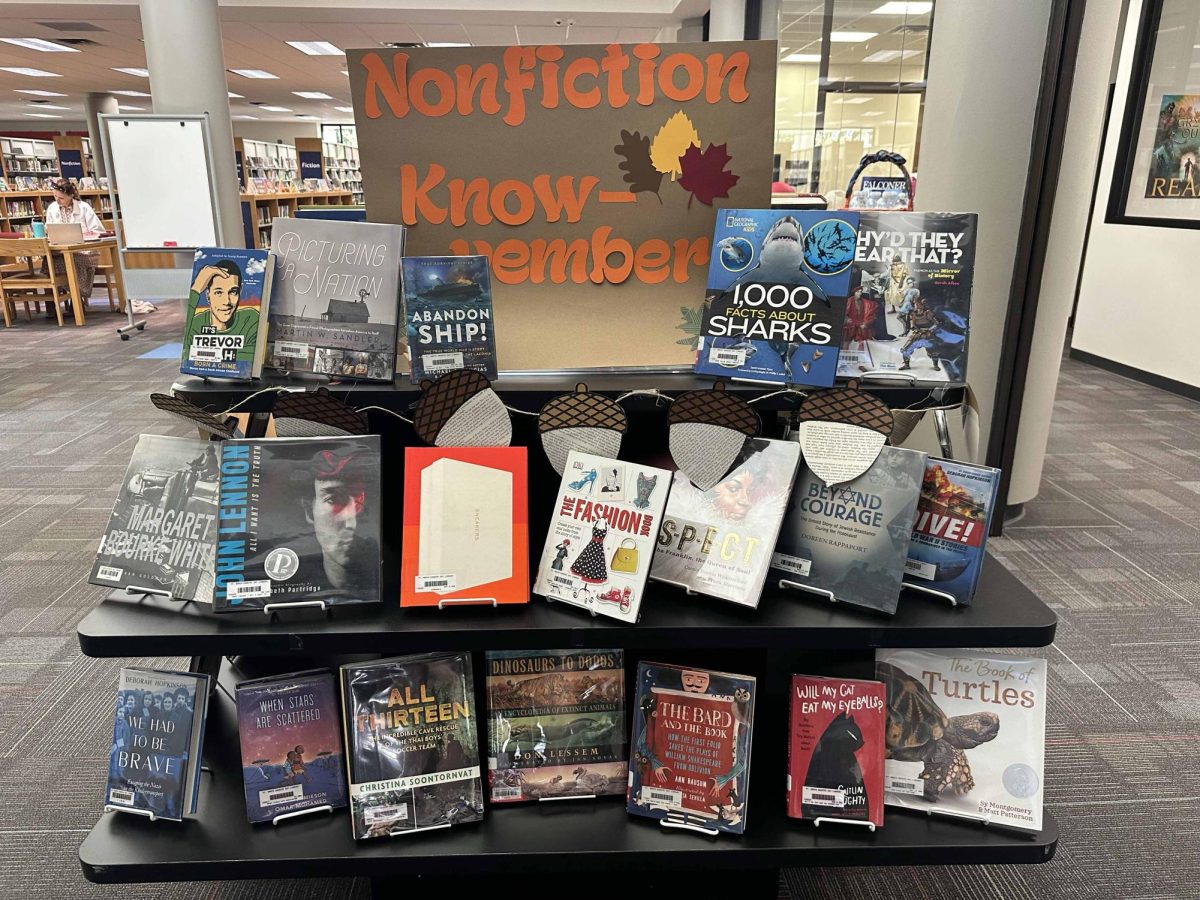I think that capitalism has irreparably damaged our perception of literature: books are no longer read. They are consumed.
This idea was brought to the forefront of my mind when I was scrolling through TikTok – lazy, I know. A girl said that “books are treated like some kind of fast food or fast fashion: eaten and then thrown away.” I was curious, so naturally, I started to google book reviews. Imagine my surprise when the reviews I was reading, albeit most were from Good Reads, said nothing about what the books were actually written for. I was given brief summaries of the book. And then, continuously, met with statistics about how popular the book was becoming. There was a significant lack of meaning in the reviews. I was not enriched or entertained. I became increasingly upset as I read on and saw a similar pattern. So naturally I started scribbling my anger into a short journal entry, bits and pieces of which are seen here. That girl was right, and I had never been so disappointed in so-called “readers.”
A once sacred form of human expression has become an industry. People do not read because they like it anymore, they read like it’s some kind of competition. It no longer matters what book changed your life, but how many you can say that you’ve read. It’s no longer a journey but a chase. It’s about the height of a solved mystery. Not the beauty, not the prose, not the empathy, not the life.
This has been a problem for a long time. It is not a new issue that emerged with popular social media apps such as TikTok. For as long as there has been media to misportray literature, there have been many misconceptions. I do believe that popular social media apps have worsened this behavior, especially in the competition aspect (not to sound like a parent).
Reading should be like talking to an old friend. It should be personal, touching, complex, warm, bright, and timeless. We all experience different lives, but reading is one of the few things that feels universal. The way the words are imbibed into your life has affected someone else the same way. At the very least, reading and writing are forms of connection, a way to reach out to others through words only few can truly understand.
Let’s not even talk about the whole pricing issue. I was at Barnes and Noble last weekend, and I paid forty dollars for one book. That’s crazy. It was a biography of Michelangelo (“The Agony and the Ecstasy”). I had to apologize to my dad for spending an egregious amount of money in an attempt to educate myself. Because of the mass production of books and the influence of monopolistic businesses, I can’t even buy myself a book without fretting over the price. The whole thing makes me upset.
There have been months of my life where I have read an insane amount of books (reaching up to as many as 38). Sadly, those books were mostly by people who wrote them to make money. To feed the vultures that pose as humans on so-called “BookTok.” They were not written because the author loved or believed in the story. They lacked depth and tended to make me contemplate my entire being for the next seven minutes. They make me feel as though I have wasted my time reading and sometimes are so bad that I cannot bring myself to pick up a book for a long period of time.
These authors take part in our capitalistic society, where the only thing about books that matters is how much money they can make. Publishing is a business, so publishers will invest in books they believe will have high value, not ones that have artistic value. This makes popular genres be prioritized over books that enrich. Publishers and authors also consider the market appeal when making a book, which again leads thought-provoking books to be put on the back burner, while easier things are produced to appeal to a wider variety of people. Literary trends like this lead to authors not making original or untested books and limits are placed on the diversity of thought. I mean, is it so scary to have an original story?
Though there are lots of authors who fall into this category, there are still many that do not. I personally love anything by Olive Blake, “Alone With You in the Ether” being one of my favorites. She always writes her characters with care and makes the book almost come to life with her writing. She makes each person deep and interesting and makes the storyline transfixing. Tahereh Mafi is a fabulous young adult writer. Her books are easier to follow for younger kids yet have depth. Her series “Shatter Me” gained lots of popularity back in 2020, and remains to be a great book to get 11-14-year-olds started with. I also really enjoy anything by Ottessa Moshfegh. She has won multiple awards for various books and continued to stun with her style. She takes the reader through dark intricately written paths that divulge into the struggles with life from the view of people who are not exactly reliable.
All of this causes books to become a product that is sold, which turns reading into a transaction. People adopt the “buy more, read more” mentality and have an overflowing amount of books they don’t even touch sitting on their shelves. Mentalities like this often cause books to be consumed rather than appreciated. I understand that not everyone likes difficult books, but even in the easy ones, I find a lack of effort from the author. Is it too much to ask for people to care about what they are writing?
This is not to say that popular book sales and depth are mutually exclusive. I realize that I sound somewhat bigoted when I denounce publishers for pumping out books that have popular themes. I have read some amazing popular books, like the Mara Dyer trilogy, which had depth and made it to the mainstream of book culture. Profoundness and sales are not dependent on each other. But I find that the people of today tend to push entertainment books into the light.
I’m also getting really sick of unnecessary sequels. They completely destroy the once-interesting storylines and turn them into cash-grabs.
I miss when I would read books that were written with a purpose. Take “The Metamorphosis” by Franz Kafka, for example. “The Metamorphosis,” tells the story of Gregor, who one day wakes up as an extremely large beetle–like seriously, he was huge. We go through a short bit of time with him as the people who he surrounds himself with struggle to come to terms with this change. “The Metamorphosis” offers a perspective on familial love and loyalty, which is highlighted at the end of the 70-page book. His family only wanted what he could give them– money–and did not actually care for him. The second the steady flow of income was gone, so were they. Kafka gives us a short novel that’s an underlying message related to every person. I guess I’m just a little confused at seeing a review that said this book was “just about a guy becoming a beetle.”
“It Ends With Us” by Colleen Hoover is on the opposite side of my personal book spectrum. I was not a fan. I don’t like the author, to start. She has continuously defended people who committed atrocities, and I’m also just not a fan of her writing style. If I had looked away from my many unlisted quarrels with Colleen Hoover, I still would not have been a fan of this book. However, that doesn’t mean it was not meaningful. “It Ends With Us” follows Lily Blossom Bloom, a punk-rock flower shop owner, as she attempts to escape from the tumultuous relationships she has been misled into. On top of this, Lily struggles with many other things: naming (clearly), people from her adolescent years, and her new pregnancy with her awful boyfriend, Ryle. Despite popular online opinion, I do not think this book glorifies abuse, though some of her other books 100% do. This is a letter to Hoover’s young self, and many other young girls struggling with similar situations, as the author recalls real-life events that happened to her in a past relationship. Hoover’s book has given hope to many others in similar situations. So why do I see people categorizing “It Ends With Us” as a romance book?
Books like “The Metamorphosis” and “It Ends With Us” show that another victim has fallen to greed. It’s very rare that we see actually interesting books and it’s because of people who only write for cash-grabs. But death comes slowly to literature. It started when we stopped paying attention to the lessons it was trying to impart to us. No one is at fault but the system that we have all been taught to uphold. Reading is not about how many books have been sold, but how many lives it has touched.





